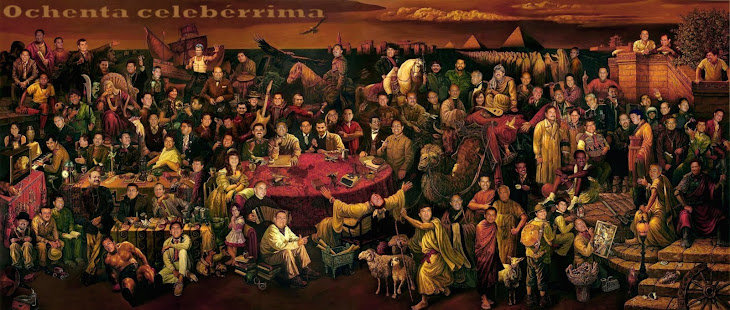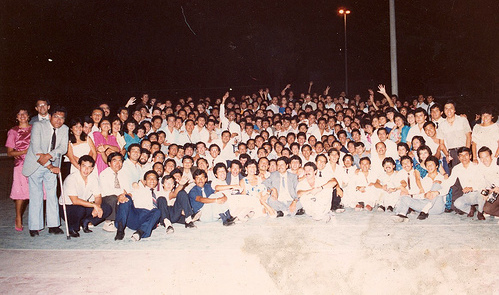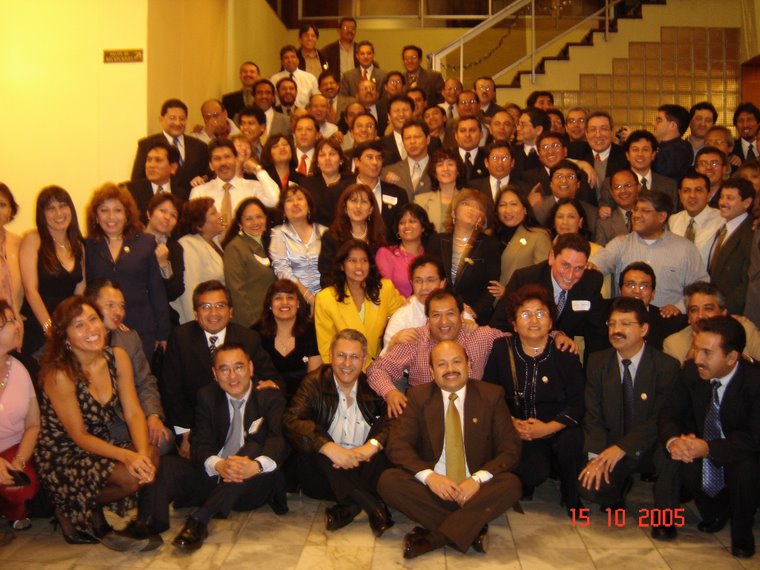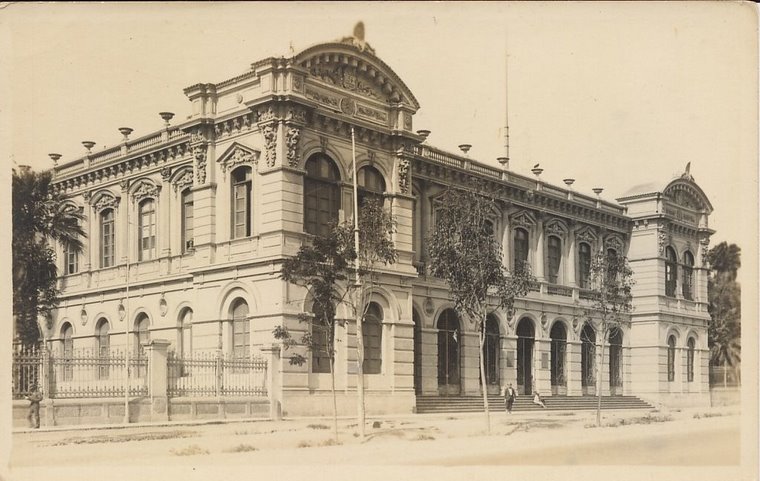Rights-based approaches to improve people’s health in Peru
www.thelancet.com Vol 372 December 13, 2008
Published Online
December 10, 2008
Peru is challenged by poverty, discrimination, and inequity,
including starkly diff erent morbidity and mortality
rates and a high prevalence of avoidable illnesses
and deaths in people who are poor, indigenous populations,
and excluded groups.1,2 Raising the importance
of the right to health as a core obligation to be fulfi lled
and implementing rights-based approaches within
health-sector development in Peru has proven helpful
to tackle these challenges. Rights-based approaches,
and their principles of inclusion, participation, and
fulfi lment of obligation, tackle the underlying causes
of poverty and disadvantage, and work in partnership
with a wide range of stakeholders to address these
causes.
Although there have been remarkable advances in the
pro vision of health services in the past 15 years,3 citizens,
health workers, and policy makers in the Peruvian health
system have a limited understanding of health rights.
Services still have serious limitations in their respect for
culture, citizenship, or equity in terms of race, age, and
gender.4,5 Moreover, mechanisms are poor for holding
state offi cers and health systems accountable for health
rights. Against such a background, public policies and
the way they are implemented are important in realising
health rights.6
In recent years, there has been an increasing understanding
of the vital role of citizens’ participation in
ensuring legitimate, inclusive, and sustainable social
policies. The World Bank’s 2004 World Development
Report, and a related 2006 report1 on the social sectors
in Peru, stressed the importance of key relations
between policy makers, health providers, and citizens
or health-service users in health-service performance,
in what the World Bank refers to as the triangle of
accountabilities and responsibilities. The reports
emphasised that citizens and civil-society networks are
paramount in infl uencing health-policy making (what
the World Bank calls the long route of accountability)
and the performance of health providers (the short
route of accountability). Improvements in the health
of people who are poor and marginalised in countries
with high inequity will not be achieved by technical
interventions alone. Substantial and sustainable
change will only be achieved if people who are poor
have greater involvement in shaping health policies,
practices, and programmes, and in ensuring that what
is agreed happens.
Over the past 7 years, the role of Peruvian civil society
in health has been strengthened in conceptual and
organisational terms. ForoSalud, a civil-society network
established in 2002, has become an important space
for dialogue and consensus building.7 ForoSalud has
contributed to a new vision of health policy—a vision
that is diff erent from the excessive focus on supplyside
and technobureaucratic approaches towards
effi ciency and extension of health-services coverage
of the past decade’s health-sector reform—to establish
health as a universal right.8 This establishment of a
right to health has, in turn, meant prioritising the need
for good-quality health services that should reach
people who are the poorest and most excluded—the
estimated 40% of the overall Peruvian population with
no access to health services3—as well as establishing
citizens’ participation in health-policy decision making
at national and regional levels, and setting standards
for social surveillance of health policies and public
health services.
Major advances have been made in the past 4 years
towards this vision. Working with a range of allies,
including CARE, ForoSalud has developed the capacity
of citizens to participate in the formulation of healthpolicy
proposals, by bringing their voice to policy design
and public debate via the construction of bottom–up
approaches.9,10 Policy proposals have been presented
in public dialogues in most of the country’s 23 regions,
and in diverse national and regional “invited spaces”
in which ForoSalud has succeeded in including several
proposals in regional health policies. (Those are
spaces created by government for policy analysis and
consensus building; “invited” to diff erentiate them
from autonomous dis cussions by civil-society networks
of policy analysis and debate.) ForoSalud has also been
involved in passing and supporting laws on the rights
of health-service users and on extending citizenparticipation
models for the management of health
facilities in primary care.10
At the regional and local levels, ForoSalud has supported
the development of accountability mech anisms
for citizens’ and civil-society groups, including
services in the regions of Piura in the north and Puno
in the south. These programmes have linked female
community leaders—including Quechua and Aymara
leaders in Puno—to regional offi ces of the human-rights
ombudsperson to monitor women’s health rights,
particularly for good-quality and appropriate maternal
health services. This process has promoted positive
developments, including improved attitudes on the part
of health-service providers towards women who use the
services, and better responsiveness of services to the
needs of poor people.11
CARE’s and ForoSalud’s experience and results stress
the importance of working with alliances and civilsociety
networks as a prime means of pressing for
the transformation of state structures. Rights-based
approaches promote a better understanding of vulnerability
as a structural issue, a vulnerability that derives
from and results in inequitable power relations in
society. Through new ways of working with both rights
holders and duty bearers, rights-based approaches
tackle unjust power relations and discrimination, to
implement systems and mechanisms that ensure all
actors are accountable in their core obligations towards
health rights.12
Improving citizenship and governance comple ments
key innovations that are state-driven, such as the
use of right-to-health indicators to evaluate integral
and comprehensive health-systems performance. This
process demands not only constructing political will, but
also improving the technical skills of public offi cers and
service providers.6
The key lesson from Peru is the need to work
in parallel not only with the supply-side of rights
(authorities, health providers, and politicians) but
citizens with greater capacity to demand and negotiate
their rights).
*Ariel Frisancho, Jay Goulden
CARE Perú, Jesus María, Lima 11, Peru
afrisanchoarroyo@yahoo.es
We thank Paul Hunt for comments on an earlier draft. AF has been elected as an
individual member of ForoSalud’s Directorate. JG declares that he has no confl ict
of interest.
1 Cotlear D, ed. A new social contract for Peru: an agenda for improving
education, health care, and the social safety net. A World Bank country study.
January, 2006: 110–12. http://web.worldbank.org/WBSITE/EXTERNAL/
COUNTRIES/LACEXT/0,,contentMDK:20823300~pagePK:146736~
piPK:146830~theSitePK:258554,00.html (accessed Nov 26, 2008).
2 UN High Commissioner for Human Rights. UN Special Rapporteur on the right
of everyone to the enjoyment of the highest attainable standard of physical
and mental health. March 11, 2008. http://www2.sx.ac.uk/human_rights_
centre/rth/docs/3pagerupdate%2003%2008.doc (accessed Nov 22, 2008).
3 Peruvian National Institute of Statistics and Informatics (Instituto Nacional
de Estadística e Informática—INEI). National Demographic and Health
Survey (ENDES ) 1996, 2000 and ENDES Continua 2004–2006.
August, 2007. http://www1.inei.gob.pe/biblioineipub/bancopub/Est/
Lib0733/Libro.pdf (accessed Nov 24, 2008).
4 Amnesty International. Peru: poor and excluded women. Denial of the
right to maternal and child health. July 11, 2006: 21–30. http://www.
amnesty.org/en/library/asset/AMR46/004/2006/en/dom-
AMR460042006en.pdf (accessed Nov 20, 2008).
5 Physicians for Human Rights. Deadly delays: maternal mortality in Peru.
A rights-based approach to safe motherhood. 2007. http://physicians
forhumanrights.org/library/report-2007-11-28.html (accessed
Nov 20, 2008).
6 Frisancho A. Looking for more inclusive and sustainable health policies:
the role of participation. In: Cholewka P, Motlagh M, eds. Health capital
and sustainable socioeconomic development. Florida: CRC Press, 2008.
7 Eyben R, ed. Relationships for aid. London: Earthscan, 2006: 124–27.
8 UK Department for International Development. Alliances against poverty:
DFID’s experience in Peru 2000–2005. 2005. http://www.dfi d.gov.uk/pubs/
fi les/peru/Alliances-Against-Poverty-full.pdf (accessed Nov 18, 2008).
9 Arroyo J. ForoSalud: Memoria de una experiencia de construcción de
sociedad civil 2000–2004. Lima, Peru: ForoSalud, 2007.
10 Suyama B. Mutual accountability in aid relationships: making aid work for
the poor. CARE International UK. London. Aug 7, 2008: 16–17. http://www.
careinternational.org.uk/aid_policy/mutual_accountability (accessed
Nov 22, 2008).
11 Potts H. Accountability and the right to the highest attainable standard of
health. 2008. http://www2.essex.ac.uk/human_rights_centre/rth/docs/
HRC_Accountability_Mar08.pdf (accessed Nov 20, 2008).
12 UK Interagency Group on Human Rights Based Approaches. The impact of
rights-based approaches to development: an evaluation-learning process.
Bangladesh, Malawi and Peru. December, 2007. http://www.crin.org/docs/
Inter_Agency_rba.pdf (accessed Nov 22, 2008).
also with the demand side (organised empowered
the promotion of citizens’ surveillance of health
viernes, enero 09, 2009
Suscribirse a:
Comentarios de la entrada (Atom)













No hay comentarios.:
Publicar un comentario